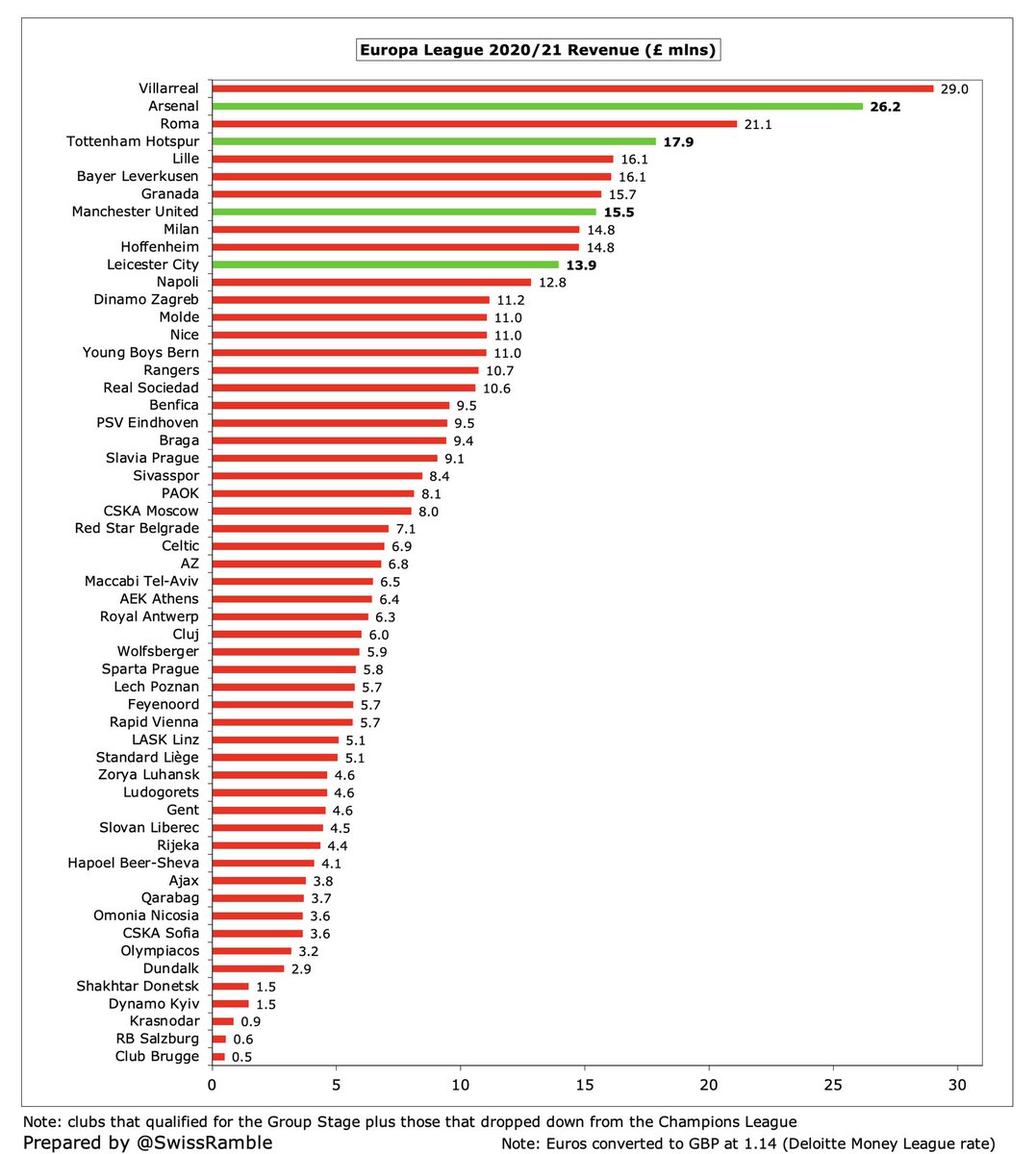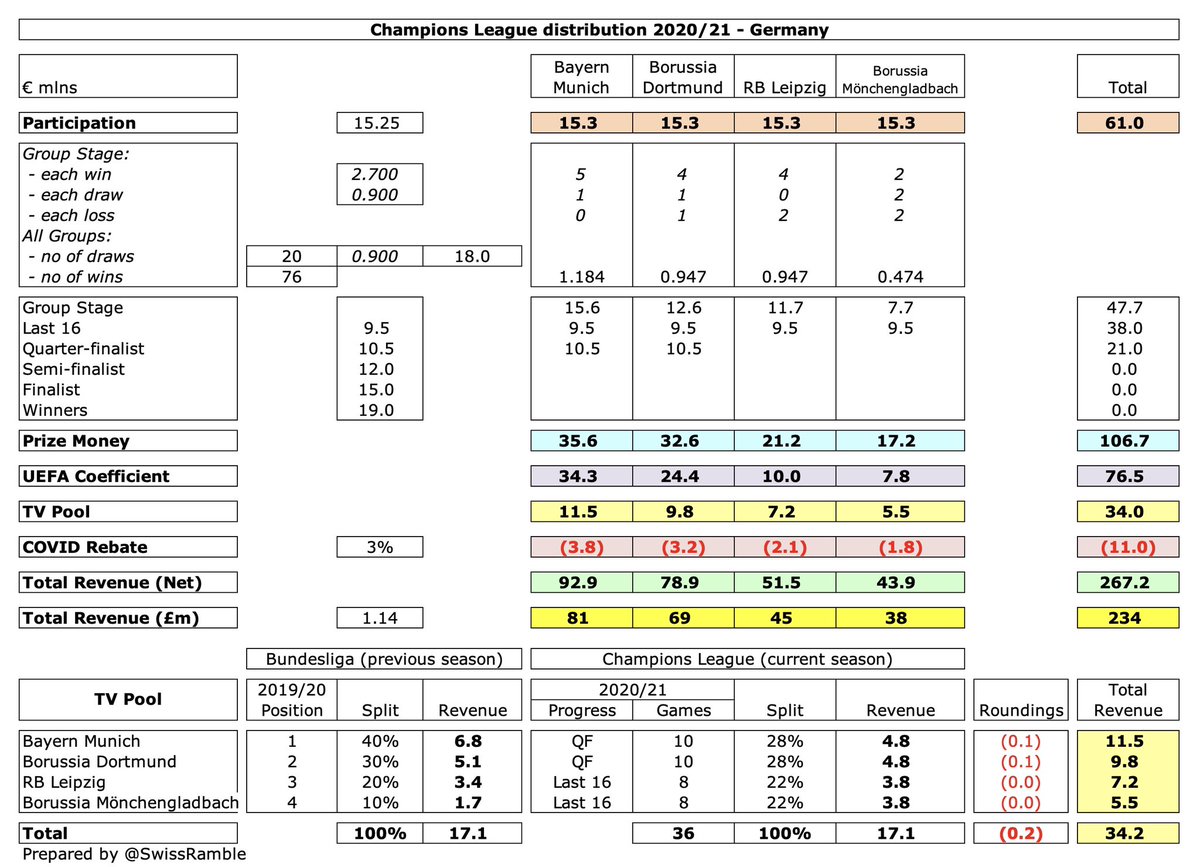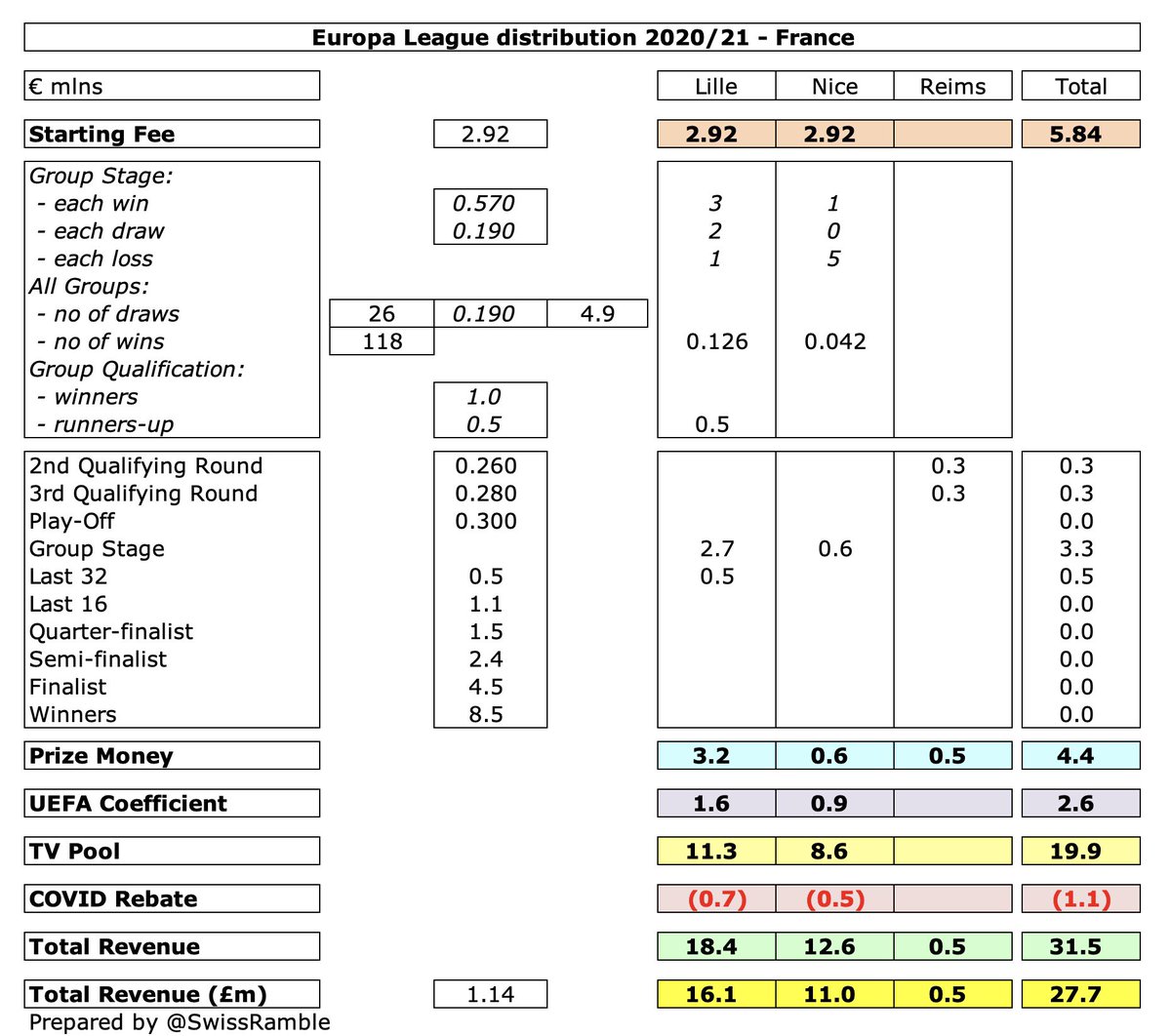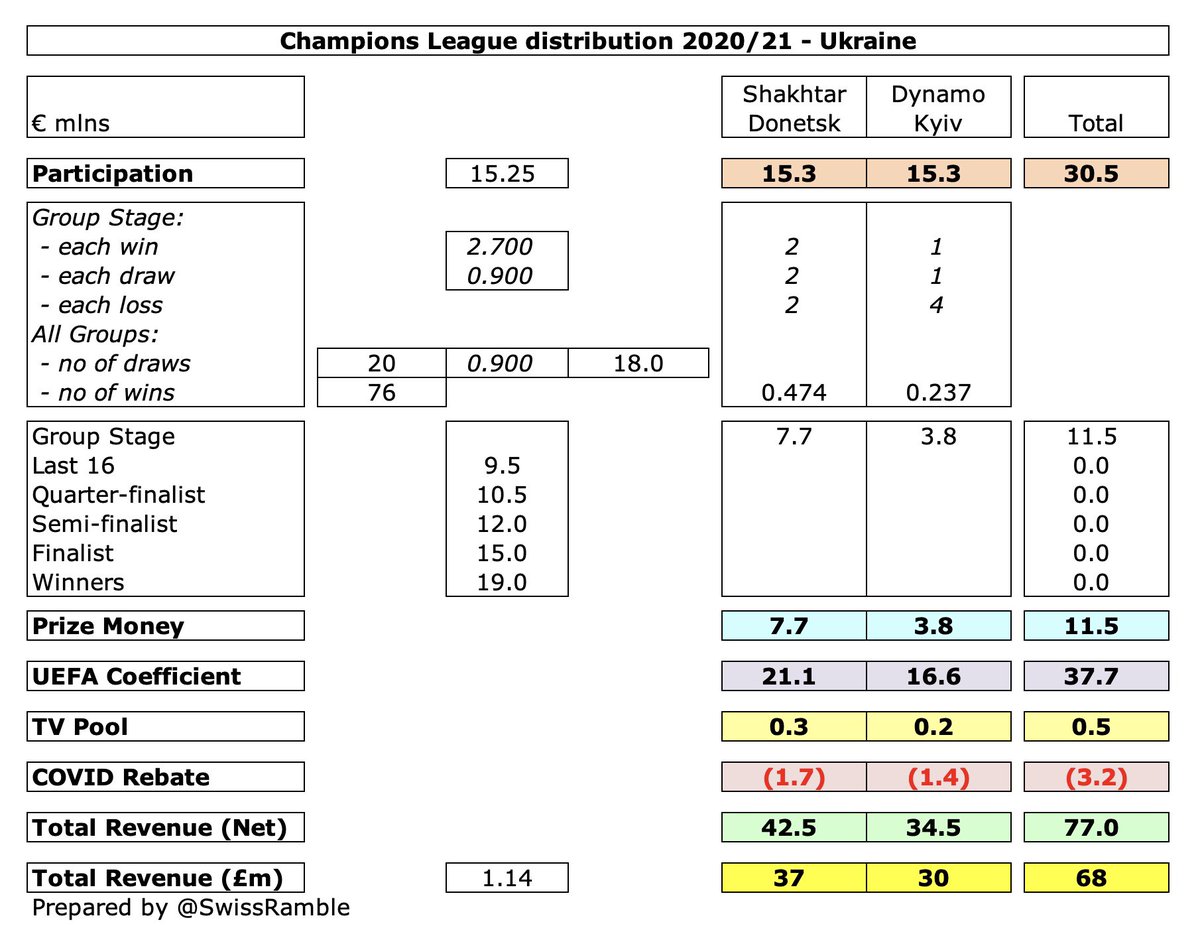UEFA has published the revenue distributions for the Champions League and Europa League in the 2020/21 season. Although these are very close to the modelled figures that I have previously provided, I thought some people might like to have the final, official figures.
Unsurprisingly, the two Champions League finalists earned the most with winners #CFC and #runners-up MCFC receiving £105m and £104m respectively, followed by #RealMadrid and #PSG, both £96m, then #FCBayern £81m and #LFC £77m. 

Clubs in the Europa League received a lot less with winners #Villarreal getting only £29m, followed by semi-finalists #AFC £26m and #ASRoma £21m, then #THFC £16m. Runners-up #MUFC earned £15m after dropping down from the Champions League, while #LCFC got £14m. 

The financial incentive for finishing in the top four is clear, as the average earnings of England’s Champions League representatives of £89m are nearly five times as much as the £19m average of the Europa League clubs. 





#MUFC £70m represents their total earnings from Europe, split into £54m from the Champions League (eliminated at the group stage) and £15m for reaching the Europa League final. Note: they only receive participation fee and UEFA coefficient from the senior competition. 

In Spain #RealMadrid led the way with £96m for reaching the semi-final, while the other three Champions League representatives also earned well for getting to the last 16: #FCBarcelona £74m, #Atleti £66m and #Sevilla £59m. #Villarreal received £29m for winning the Europa League. 





#FCBayern received £81m after their quarter-final exit, while #BVB earned £69m for reaching the same stage. The Europa League representatives that qualified for the group stage, Bayer Leverkusen and Hoffenheim, averaged £15m after getting to the last 32. 





Even though #Juventus £73m, #Lazio £47m and #Atalanta £44m all reached the last 16, the bianconeri received much more, due to their higher UEFA coefficient and TV pool. #ASRoma were one of the highest Europa League earners, but their £21m was far below the Champions League clubs. 





#PSG earned £96m after reaching the Champions League semi-final, which was around as much as all the other French clubs competing in Europe, followed by Marseille £41m and Rennes £28m. Lille and Nice earned £16m and £11m respectively in Europa League, due to high TV pool. 





#RangersFC earned £11m after reaching the Europa League last 16, while #CelticFC received £7m after failing to get out of the group. The Hoops will earn considerably more from next season’s Champions League, as will Rangers if they manage to reach the group stage. 



Porto were the only Portuguese club to qualify for the Champions League group stage, earning £65m after progressing to the quarter-finals. The two clubs that reached the Europa League last 32, namely Benfica and Braga, received around £10m. 





#Ajax earned £41m (Champions League group stage £37m plus Europa League quarter-final £4m), which was nearly twice as much as the other Dutch clubs combined: PSV Eindhoven £9m, AZ £7m and Feyenoord £6m. 







Turkey’s sole Champions League qualifier, Istanbul Basaksehir, earned £20m (mainly participation fee) after failing to get out of the group. This was over twice as much as Sivasspor, who received £8m for reaching the Europa League group stage. 





For completeness, let’s now take a quick look at the other clubs that qualified for the Champions League group stage, covering representatives from Russia, Ukraine, Austria, Belgium, Denmark, Greece and Hungary.
No fewer than three Russian clubs qualified for the Champions League group stage, but they only registered a single win between them. Despite that poor record, they had decent revenue (Zenit £30m, Lokomotiv Moscow £23m and Krasnodar £23m), mainly due to the UEFA coefficient. 

The good UEFA coefficient also helped the two clubs from Ukraine in the Champions League earn well with Shakhtar Donetsk receiving £37m and Dynamo Kyiv £30m, both clubs benefiting from high UEFA coefficients. 

Austria’s representative, RB Salzburg, earned £30m, largely from the participation fee and a decent UEFA coefficient. 

Belgium’s Club Brugge also received £30m, boosted by a creditable performance in the group stage (2 wins and 2 draws), which resulted in €7.7m prize money. 

Midtjylland from Denmark earned £18m, largely from the participation fee €15.3m, as their prize money, UEFA coefficient and TV pool were all on the low side. 

The Greek representative, Olympiacos, received £31m, despite only winning one game in the group, as they were helped by a €15.5m UEFA coefficient. 

Hungary’s Ferencvaros earned £16m, largely from the participation fee €15.3m, as prize money, UEFA coefficient and TV pool were all on pretty low. 

These figures are now a full season out-of-date, but hopefully they will still be helpful to some, especially as the way that the revenue distribution is calculated is not completely intuitive. Also highlights the financial benefit of finishing in the Premier League top four.
• • •
Missing some Tweet in this thread? You can try to
force a refresh























